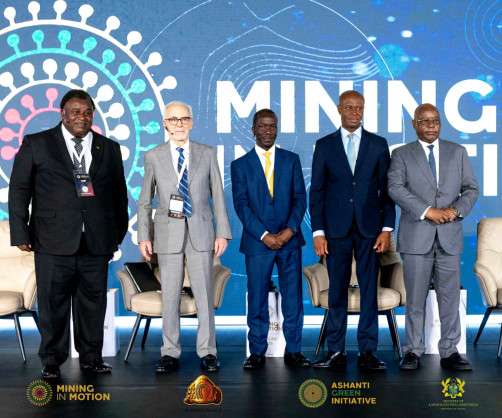During the Mining in Motion 2025 summit in Accra, mining ministers from Ghana, Liberia, Malawi, and the Democratic Republic of Congo (DRC) stressed the need to review and modernize Africa’s mining codes. They highlighted the critical role of strong policies in promoting responsible governance, fostering local value creation, and formalizing artisanal and small-scale mining (ASM). Their discussions emphasized how evolving legal frameworks are shaping the mining sector into a driver of equitable and sustainable development.
Ghana is spearheading efforts to update its mining regulations, including the introduction of a medium-scale mining category to bridge the gap between artisanal and large-scale operations. Deputy Minister of Lands and Natural Resources, Alhaji Yusif Sulemana, underscored the importance of local ownership, sustainable technology, and financial access for miners.
“We aim to establish a legal framework that enables indigenous communities to participate in the industry. Our goal is to help miners start small, embrace sustainable practices, and gradually expand,” he stated.
Liberia’s Minister of Mines and Energy, Wilmot J.M. Paye, echoed Ghana’s commitment to inclusivity, emphasizing the formalization of ASM as a key national priority. He stressed that small-scale mining provides livelihoods for hundreds of thousands of people and called for simplified regulations and stronger intergovernmental coordination.
“Enhancing productivity in this sector requires streamlined policies and active collaboration. We’re ensuring miners have a voice in shaping the future,” Minister Paye affirmed.
Malawi’s Minister of Mining, Kenneth Zikhale Ng’oma, highlighted the importance of long-term planning under the country’s Minerals and Mining Policy, which supports investment in human capital, infrastructure, and modern technology.
“We are focusing on capacity-building and linking ASM miners to banks to help them grow their businesses,” he explained.
The DRC’s Deputy Minister of Mines, Godard Motemona Gibolum, reinforced the call for stronger mining governance, citing his country’s commitment to reforming ASM practices to benefit local communities and the economy. He stressed environmental protection as a priority and noted increased government oversight, including stricter contract terms and enhanced monitoring.“Our new vision is centered on value addition and job creation for our people,” he declared.
Ghana’s policy reforms were highlighted as a blueprint for mining code revisions across Africa. Initiatives such as the Local Content and Policy Regulation, mandating the use of Ghanaian expertise and resources in mining, alongside the Equipment Tracking Regulations and Blue Water Initiative, were cited as models for improving environmental standards, traceability, and value addition.
The panelists unanimously agreed that Africa’s mineral wealth must be harnessed through transparent, inclusive, and environmentally conscious governance. They emphasized that mining reforms must extend beyond legislation and be supported by capacity-building, financial access, and collaboration with local communities.


